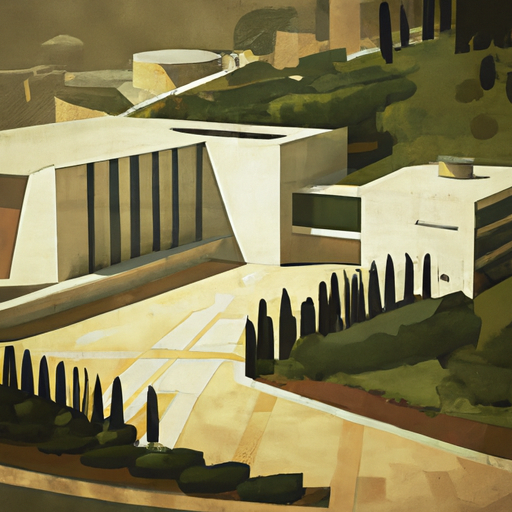This blog post delves into the complexities of the Israeli government and political structure, exploring the intricacies of its parliamentary system, the role of the Prime Minister, the influence of political parties and the impact of international relations. We will navigate through the labyrinth of Israeli politics to provide an insightful understanding of its unique political landscape.
Understanding the Israeli parliamentary system: The Knesset
The Israeli parliamentary system is anchored in the Knesset, the country’s unicameral legislature comprised of 120 members. The Knesset serves as the supreme authority in Israel, responsible for passing laws, overseeing the government’s activities, and representing the diverse voices of Israeli citizens. The Knesset members, known as Members of Knesset (MKs), are elected through a proportional representation system, ensuring fair representation for various political parties based on the percentage of votes they receive.
The Knesset plays a crucial role in shaping Israel’s political landscape, with its members engaging in lively debates, committee work, and decision-making processes that impact the country’s policies and governance. The Knesset also serves as a platform for Israeli citizens to voice their concerns and hold their elected officials accountable for their actions. The government’s ability to govern effectively is contingent on maintaining the support and confidence of the Knesset, making it a key player in the Israeli political system.

Image of the Knesset, the Israeli parliament building in Jerusalem
The quintessential role of the Prime Minister: More than just a leader?
The Prime Minister of Israel holds a pivotal role in the country’s political landscape, serving as the head of government and leading the executive branch. Beyond being a mere leader, the Prime Minister is tasked with steering the nation through complex challenges, both domestically and internationally. This position requires a delicate balance of diplomacy, strategic decision-making, and an unwavering commitment to the welfare of the Israeli people. The Prime Minister is not only responsible for formulating policies and implementing legislation but also for representing Israel on the global stage.
As the face of the Israeli government, the Prime Minister plays a crucial role in shaping the country’s image and maintaining diplomatic relations with other nations. The Prime Minister’s ability to navigate geopolitical tensions, foster alliances, and promote Israel’s interests on the international front is essential for safeguarding the country’s security and prosperity. Moreover, the Prime Minister’s leadership style and vision can influence the direction of Israeli politics and shape the national agenda for years to come.
Political parties in Israel: A mosaic of ideologies?
Political parties in Israel represent a diverse array of ideologies, reflecting the multifaceted nature of Israeli society and politics. These parties play a crucial role in shaping the country’s governance, policymaking, and national discourse. With a proportional representation system in place, Israel’s political landscape is characterized by a multitude of parties vying for representation in the Knesset.
- 1. Ideological Spectrum:
From right-wing conservative parties like Likud to left-wing progressive parties such as Meretz, the Israeli political spectrum encompasses a wide range of ideological positions. Parties often align themselves based on issues such as security, religion, economics, and the Israeli-Palestinian conflict. This ideological diversity contributes to the vibrancy of Israeli democracy but can also lead to coalition governments with competing interests. - 2. Coalition Building:
Given the fragmented nature of Israeli politics, coalition building is essential for forming a stable government. No single party has ever won an outright majority in the Knesset, necessitating alliances between parties to govern effectively. Coalition negotiations often involve compromises, trade-offs, and delicate maneuvering to accommodate the varied interests of different parties.
Israel and international relations: A friend or a foe?
Israel’s position in the realm of international relations has long been a subject of debate and scrutiny. As a nation situated in a complex geopolitical landscape, Israel has forged both strong alliances and faced significant challenges on the global stage. The country’s relations with various countries and international organizations have shaped its foreign policy and diplomatic engagements.
Israel’s strategic partnerships with countries like the United States have been instrumental in bolstering its defense capabilities and promoting its interests on the world stage. The US has been a key ally in providing military aid, political support, and diplomatic backing to Israel, solidifying their close relationship over the years. Additionally, Israel has cultivated ties with other nations in the Middle East, Africa, Europe, and beyond, seeking to expand its diplomatic reach and influence.
The Israeli government, with its diverse political parties and robust democratic processes, presents a fascinating study. The nation’s political landscape is a reflection of its rich history and the resilient spirit of its people. The challenges faced by Israel in terms of international relations and internal political dynamics are substantial, yet the country continues to strive for a balanced and inclusive political environment. The future of Israeli politics remains a captivating prospect, with the potential for both continuity and change.
